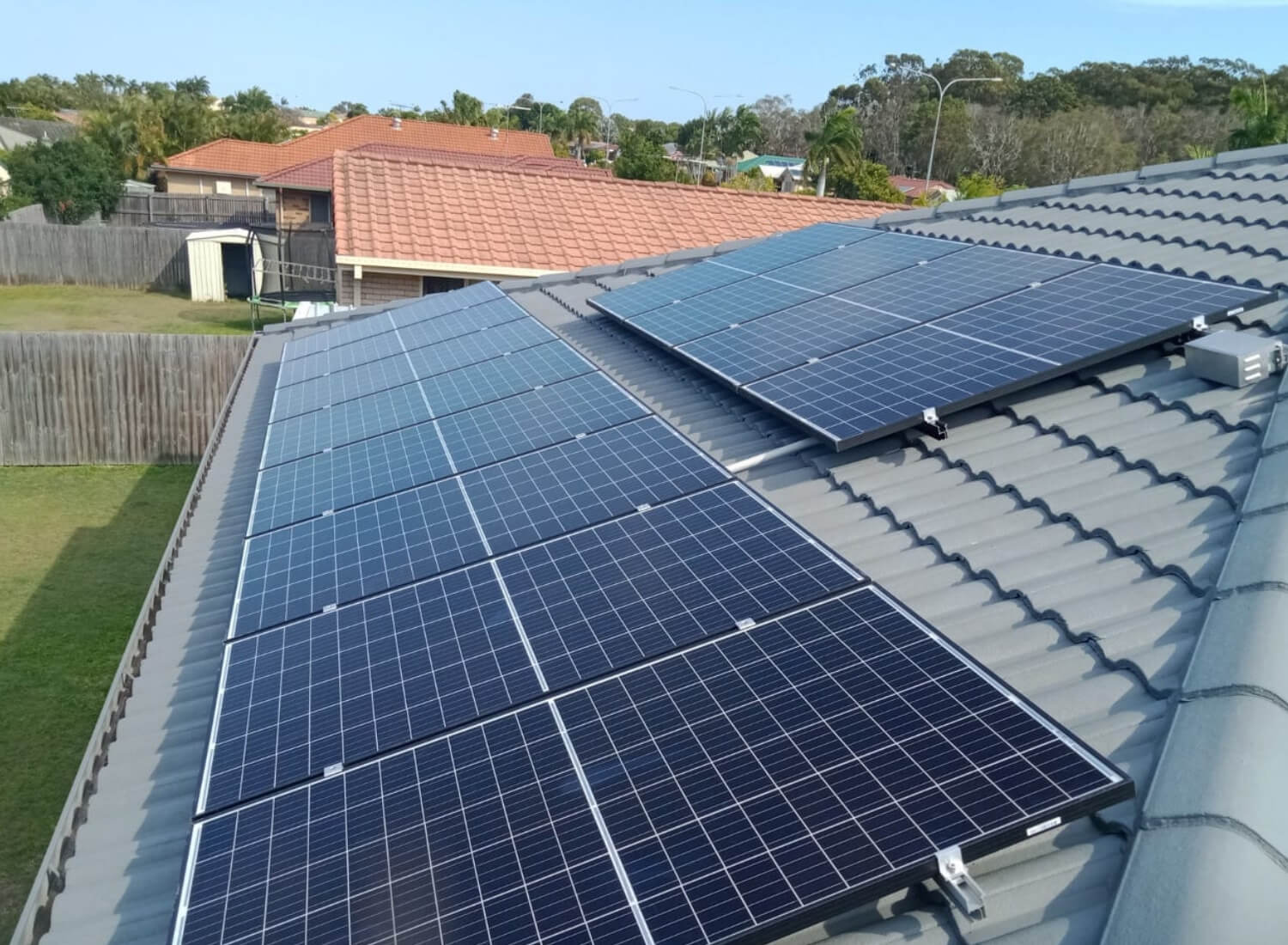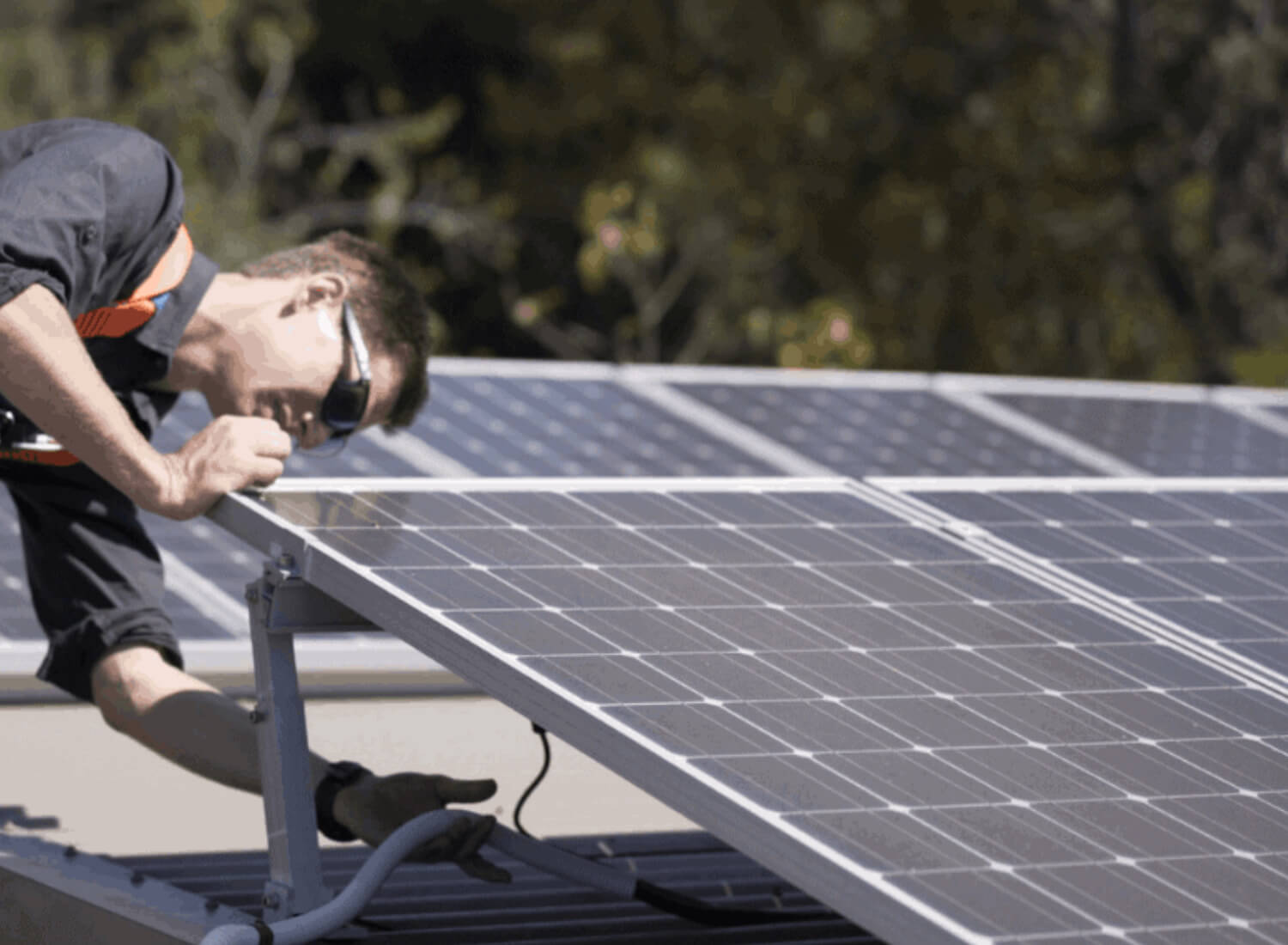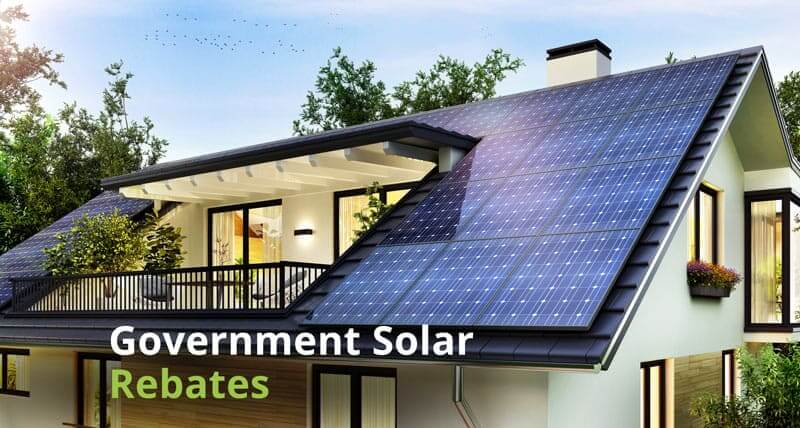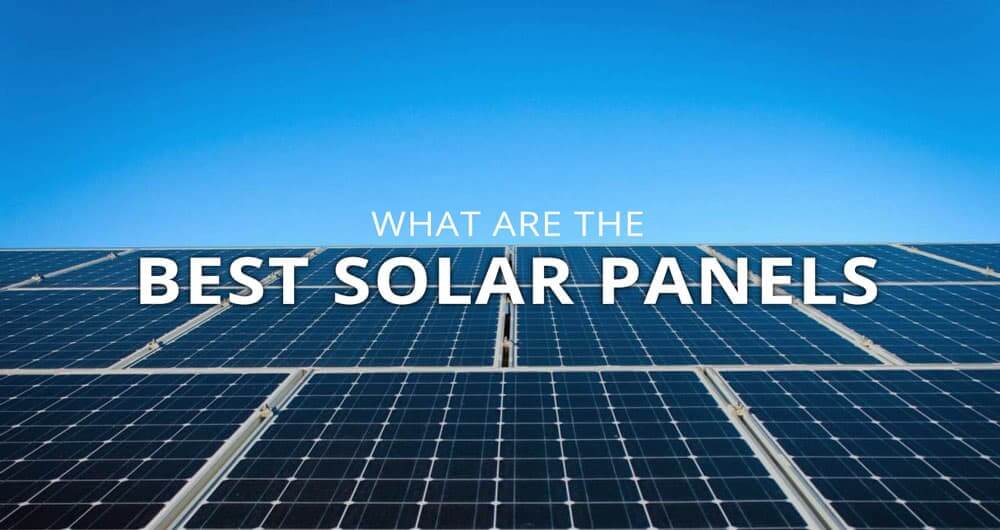Home How Much Power Does a 7kW Solar System Produce per Day?
How Much Power Does a 7kW Solar System Produce Per Day?
On a fair dinkum day, a 7kW solar rig might churn out about 28kWh of juice. Factors like the efficiency of your panels in snagging sunlight, how many hours of sunshine your location racks up, where you’re positioned on the map, and the tilt of your panels could tweak those figures a bit.

Source: gienergy
Table of Contents
ToggleShort summary
- A 7kW solar system can produce up to 28kWh per day on average, and the number of panels required for an installation ranges from 18 to 28.
- Optimising a solar system’s performance through proper positioning, maintenance & consideration of environmental factors leads to greater energy production & cost savings.
Understanding the power output of a 7kW solar system
A 7kW solar system is a popular choice for homeowners looking to generate their own electricity and save on energy bills.
Let’s learn more about this system, including its energy rating, panels needed, output, and factors affecting its efficiency.
Daily energy production for a 7kW solar system
A 7kW solar system typically produces about 28kWh (kilowatt-hours) of energy daily. However, solar power production is influenced by various factors such as solar panel efficiency, hours of sunlight, and geographical location. For example, a solar array facing south in the northern hemisphere can maximise power production.
Optimal panel positioning and routine maintenance are recommended to optimise the performance of a solar system and ensure efficient electrical power generation.
Here is a table showing the energy production of a 7kW solar system in the major regions in Australia.
| Region/City | Daily output (kWh) | Annual output (kWh) |
|---|---|---|
| Brisbane, QLD | 29.40 | 10,731 |
| Sydney, NSW | 27.30 | 9,965 |
| Perth, WA | 30.80 | 11,242 |
| Melbourne, VIC | 25.20 | 9,198 |
| Adelaide, SA | 29.40 | 10,731 |
| Hobart, TAS | 24.50 | 8,943 |
| Canberra, ACT | 30.10 | 10,987 |
| Darwin, NT | 30.80 | 11,242 |
The meaning of a 7kW rating
A 7kW rating indicates that the system is capable of producing up to 7 kilowatts, or 7,000 watts, of DC direct current power at any given time. The recommended daily electricity consumption range for a 7kW solar system is 24 to 32kWh, which can influence the power average payback period.
How many panels do I need for a 7kW solar system?
To accommodate a 7kW solar system, you will need to determine how many solar panels are required, which can range between 18 and 28 residential solar panels forming a solar array.
The wattage of the panels will, however, determine the exact number of solar panels needed. For instance, if you use 250W solar panels, you will only need about 28 panels to make a 7kW solar system.
However, if you use higher-efficiency panels, like 500W panels, you will need only 14 solar panels to make up a 7kW solar system.
Here are some common solar panel sizes that can make up a 7kW solar system:
- 250W x 28 solar panels = 7.00kW
- 270W x 26 solar panels = 7.02kW
- 330W x 22 solar panels = 7.26kW
- 330W x 21 solar panels = 6.93kW
- 350W x 20 solar panels = 7.00kW
- 370W x 19 solar panels = 7.03kW
- 390W x 18 solar panels = 7.02kW
- 400W x 18 solar panels = 7.20kW
- 420W x 17 solar panels = 7.14kW
- 450W x 16 solar panels = 7.20kW
- 480W x 15 solar panels = 7.20kW
- 500W x 14 solar panels = 7.00kW
How much roof space does a 7kW solar power system require?
The size of your solar array will depend on the efficiency of the solar panels utilised in the installation.
The average 250W solar panel is 1m x 1.6m or 1.6m2. Therefore, a 7kW solar system with 28 panels requires approximately 45 square metres of roof space.
Formula:
1.6m2 x 28 (250W panels) = 44.8 m2 of roof space
If you use higher-efficiency panels, like a 370W panel, you will require about 19 panels for a 7kW solar system, and consequently about 33.25 m2 of roof space. Each 370W solar panel measures about 1.75m x 1 m, or 1.75 m2.
Formula:
1.75m2 x 19 (370W panels) = 33.25m2 of roof space
Higher efficiency solar panels will require less space, while lower efficiency panels will need more roof area. Installing high efficiency panels like SunPower panels can reduce the space needed and help generate more power in a smaller area.
Factors affecting the power output of a 7kW solar system
Several factors can affect the power production of a solar system, such as solar panel efficiency and sunlight hours. Solar panel efficiency is a metric that quantifies the amount of the sun’s energy that is transformed into electricity.
Other factors that can influence solar power production include:
- Tilt
- Orientation
- Latitude
- Climate
- Shading
- Cleanliness of the solar panel surface
- The type/quality of solar panels
By carefully considering these factors and optimising your solar system’s performance, you can maximise your energy production and savings.
Solar panel efficiency
Solar panel efficiency is the ratio of the amount of sunlight converted into usable energy. Various materials, the type of solar panel, and the utilisation of a solar inverter can all impact the efficiency of solar panels. Efficiency is an important factor in calculating power output. It is usually expressed in watts per metre.
Installing high efficiency panels can help generate more energy in a smaller area and reduce the space needed for a solar system. This can be especially beneficial for homeowners with limited roof space or who want to maximise their energy production and savings.
Sunlight hours and location
Sunlight hours have a direct influence on solar power production, as they determine the intensity of sunlight that reaches the solar panels. The higher the number of peak sun hours, the greater the power output of a solar system.
Sunlight hours and location are key factors in solar power production, as the more sunlight a solar panel receives, the more energy it can generate.
Understanding how your geographic location and sunlight hours impact solar power production can help you optimise your solar system’s performance.
Tilt angle
This is the angle at which your solar panels are tilted. The tilt angle of your solar panel will influence how much sunlight they receive and consequently, the amount of energy the solar panels generate.
Optimising your solar system's performance
Maximising your solar system’s performance can lead to greater energy production, reduced electricity bills, and increased savings.
To optimise your 7kW solar system’s performance, it’s essential to ensure ideal panel positioning and perform regular maintenance.
Ideal panel positioning
The optimal positioning of solar panels is one that allows for maximum sunlight exposure. The location and climate of a region can have a substantial effect on the amount of sunlight that a solar panel receives, so different climates and locations necessitate various panel orientations in order to maximise the amount of sunlight exposure.
For locations in the northern hemisphere, solar panels should be oriented towards the true south for maximum sunlight exposure and electricity production. In the southern hemisphere, solar panels should be oriented towards the true north.
By carefully considering your location and climate, and positioning your solar panels accordingly, you can maximise your solar system’s energy production and take full advantage of the sun’s power.
Regular maintenance
Regular maintenance for solar systems is essential for guaranteeing safety, efficiency, and durability.
Maintaining your solar system includes cleaning the solar panels at least twice a year, assessing for any damage, and performing repairs as necessary. Additionally, cleaning the battery is necessary for optimal functioning.
To maintain the cleanliness of the solar panels, a soft cloth and a mild detergent should be used to remove any dirt or debris. By ensuring minimal shade and optimal system performance, you can keep your solar system running at peak efficiency and enjoy the full benefits of renewable energy.
Cost and savings with a 7kW solar system

Source: pulseelectrical
When considering a 7kW solar system, it’s important to factor in the costs and savings associated with such an investment.
The expenses related to a 7kW solar system include installation costs. However, the efficiency of solar power utilisation and the Feed in Tariff agreement are factors that have an effect on the savings and payback period of a 7kW solar system.
Installation costs
The cost of installing a 7kW solar system can vary depending on the location and quality of the system, but it may range from approximately $7,000 to $10,000. The expense of a 7kW solar system installation is impacted by the quality of the system, the location, and the complexity of the installation.
While the initial cost of a 7kW solar system may seem high, the potential savings and environmental benefits can make it a worthwhile investment. By carefully considering the installation costs, you can make an informed decision about whether a 7kW solar system is right for your home.
Payback period
The estimated payback period for a 7kW solar system is generally between 2.5 to 4 years. The payback period can vary depending on several factors, such as the efficiency of solar power utilisation and the Feed in Tariff agreement. Adding a battery storage system is likely to significantly lengthen the payback period of a 7kW solar system.
How much can a 7 kW solar system save me?
A 7kW solar system can save you about $600 to $800 depending on your cost of power and how much solar energy you are able to use at the time of generation.
It is wise to use more than 70% of the power your solar system generates to maximise on your savings. This is because self consumption can save you about 20 to 30 per kWh while sending excess power to the grid can save you only 5 to 12 cents per kWh.
By utilising heavy appliances like reverse cycle air conditioning when the sun is out, you can maximise the return from your solar system and reduce your electricity bill.
Battery storage systems and 7kW solar systems
Battery storage systems and 7kW solar systems can be an ideal combination for homeowners seeking to optimise their renewable energy utilisation.
Battery storage systems store energy generated from renewable sources, such as solar, for later use.
By incorporating a battery storage system with a 7kW solar system, you can further optimise your energy usage, reduce your reliance on the power grid, and enjoy additional protection and savings.
Advantages of battery storage
Battery storage systems offer a range of advantages, such as:
- Reducing dependence on fossil fuels
- Enhancing energy security
- Enabling the storage of energy bought at off-peak times to avoid high tariffs
- Decreasing energy bills.
Battery storage systems can help ensure a consistent supply of clean, renewable energy to your home. This increased reliability, coupled with the potential for cost savings, makes battery storage an attractive option for homeowners seeking to optimise their solar energy utilisation.
Factors to consider when using a 7kW solar system with battery storage
When utilising a 7kW solar system with battery storage, it is essential to consider the size, type, capacity, and power rating of the battery. These factors will vary depending on the system in use and the quantity of energy that needs to be stored.
Selecting the appropriate battery storage system for your 7kW solar system can help you maximise your renewable energy utilisation and enjoy the full benefits of clean, efficient power.
With the right combination of solar power and battery storage, you can reduce your energy bills, lessen your environmental impact, and enjoy a more sustainable way of living.
FAQ's
A 7.7kW solar system produces approximately 29kWh of power per day. This is one of our most popular system sizes that offer substantial versatility to meet your energy needs.
Yes, 7kW is enough to power a house if your household does not consume an excessive amount of electricity and you use the system efficiently.
However, depending on your electricity needs, you may be better off with either a smaller or larger system.
Given the typical wattage of a residential solar panel, you would need between 18 and 28 panels to power a 7kW system. This would create a solar array that generates enough energy to meet your energy needs.
The efficiency of solar panels can be affected by external factors such as location, the angle and orientation of the panel towards the sun, weather conditions, and shading from trees or buildings.
These factors can have a significant impact on the amount of energy produced by the solar panel. For example, if the panel is not facing the sun directly, it will not be able to absorb as much energy as it would if it were facing the sun directly. Additionally, additional information is provided below.
Table of Contents
Toggle




